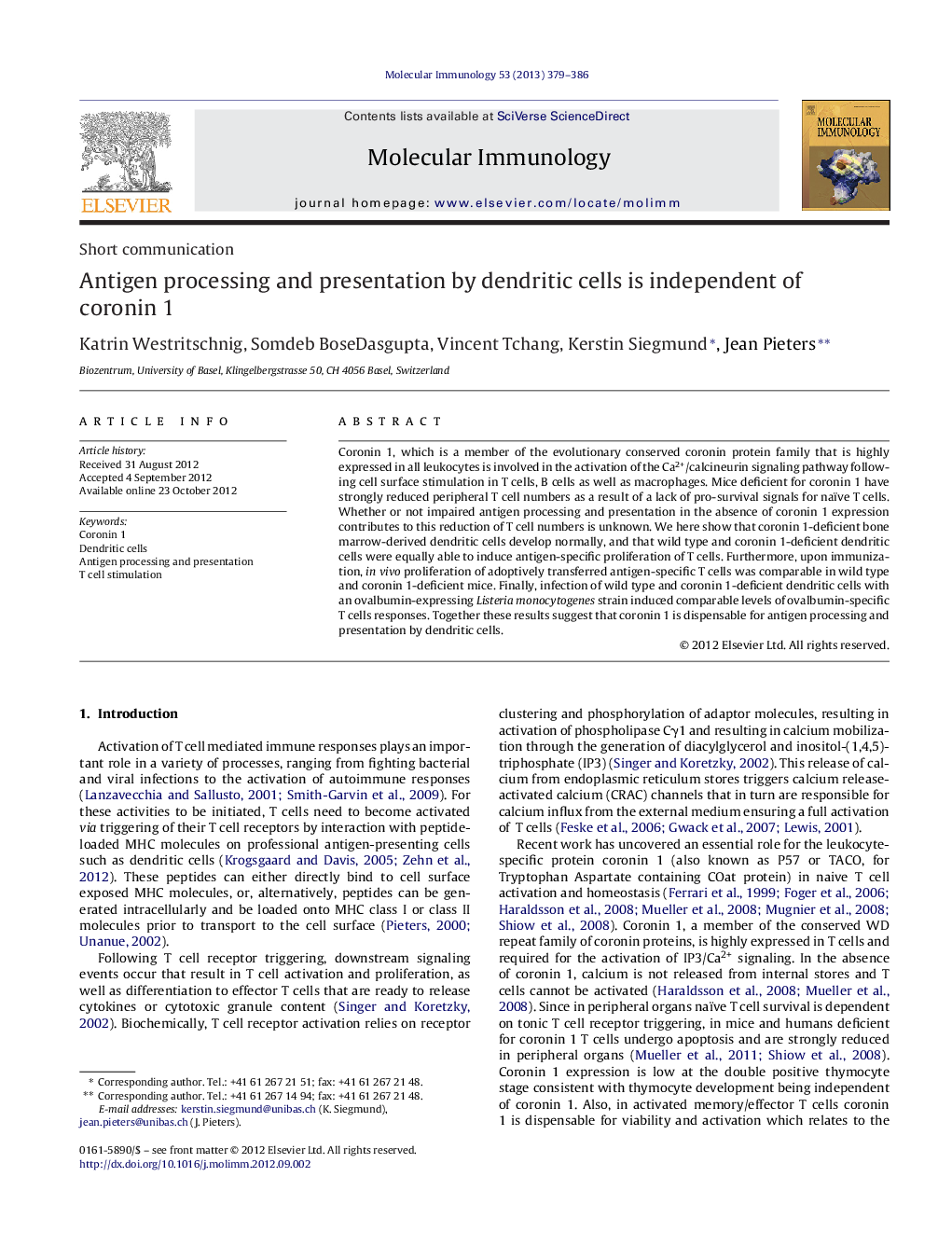| کد مقاله | کد نشریه | سال انتشار | مقاله انگلیسی | نسخه تمام متن |
|---|---|---|---|---|
| 5917012 | 1163767 | 2013 | 8 صفحه PDF | دانلود رایگان |
Coronin 1, which is a member of the evolutionary conserved coronin protein family that is highly expressed in all leukocytes is involved in the activation of the Ca2+/calcineurin signaling pathway following cell surface stimulation in T cells, B cells as well as macrophages. Mice deficient for coronin 1 have strongly reduced peripheral T cell numbers as a result of a lack of pro-survival signals for naïve T cells. Whether or not impaired antigen processing and presentation in the absence of coronin 1 expression contributes to this reduction of T cell numbers is unknown. We here show that coronin 1-deficient bone marrow-derived dendritic cells develop normally, and that wild type and coronin 1-deficient dendritic cells were equally able to induce antigen-specific proliferation of T cells. Furthermore, upon immunization, in vivo proliferation of adoptively transferred antigen-specific T cells was comparable in wild type and coronin 1-deficient mice. Finally, infection of wild type and coronin 1-deficient dendritic cells with an ovalbumin-expressing Listeria monocytogenes strain induced comparable levels of ovalbumin-specific T cells responses. Together these results suggest that coronin 1 is dispensable for antigen processing and presentation by dendritic cells.
► Development and maturation of dendritic cells occurs independent of coronin 1.
► Coronin 1 is dispensable for antigen processing and presentation in dendritic cells.
► Adoptively transferred antigen-specific T cells proliferate equally well in wild type and coronin 1-deficient mice.
► Wild type or coronin 1-deficient dendritic cells infected with Listeria are capable to induce similar T cell responses.
Journal: Molecular Immunology - Volume 53, Issue 4, April 2013, Pages 379–386
